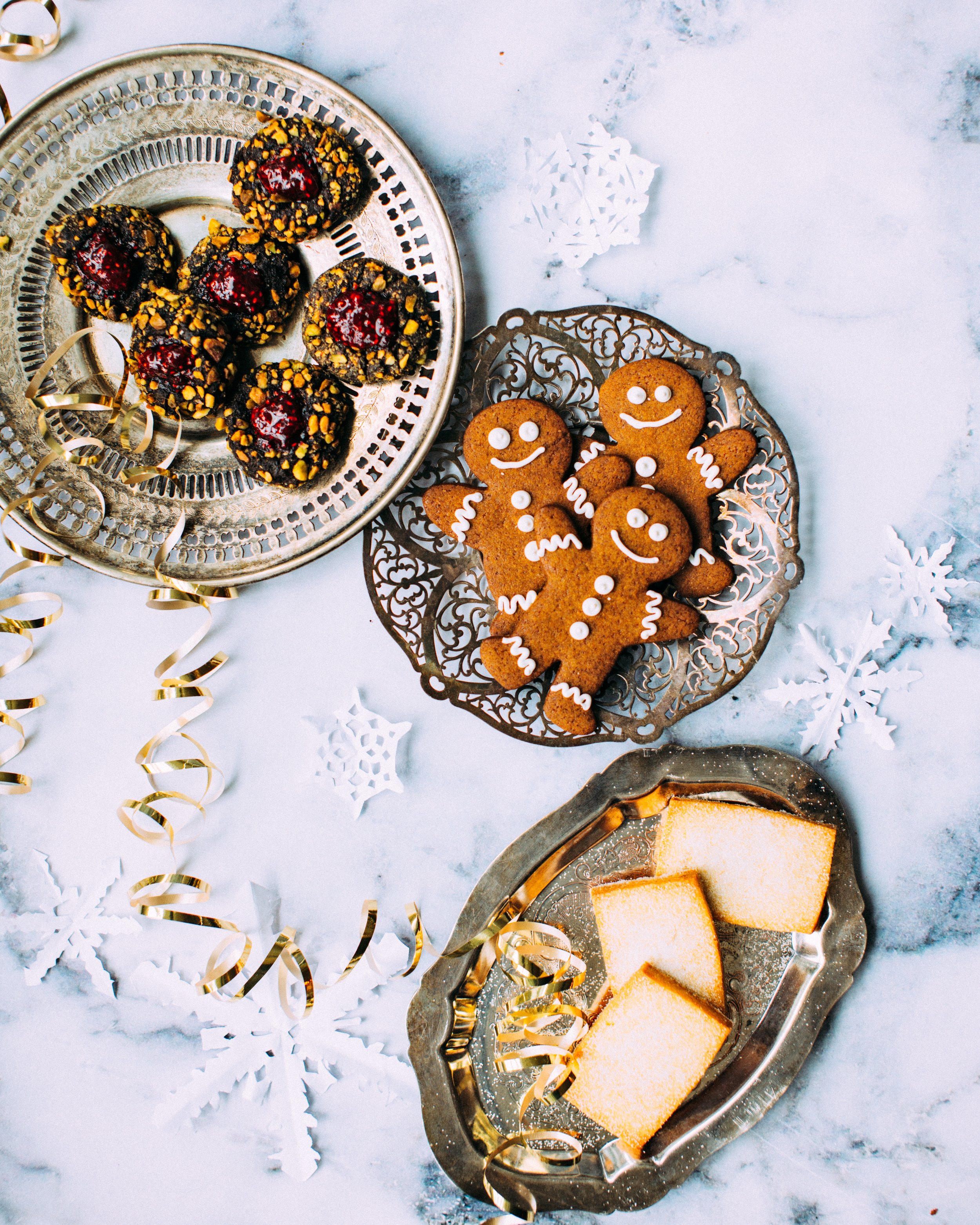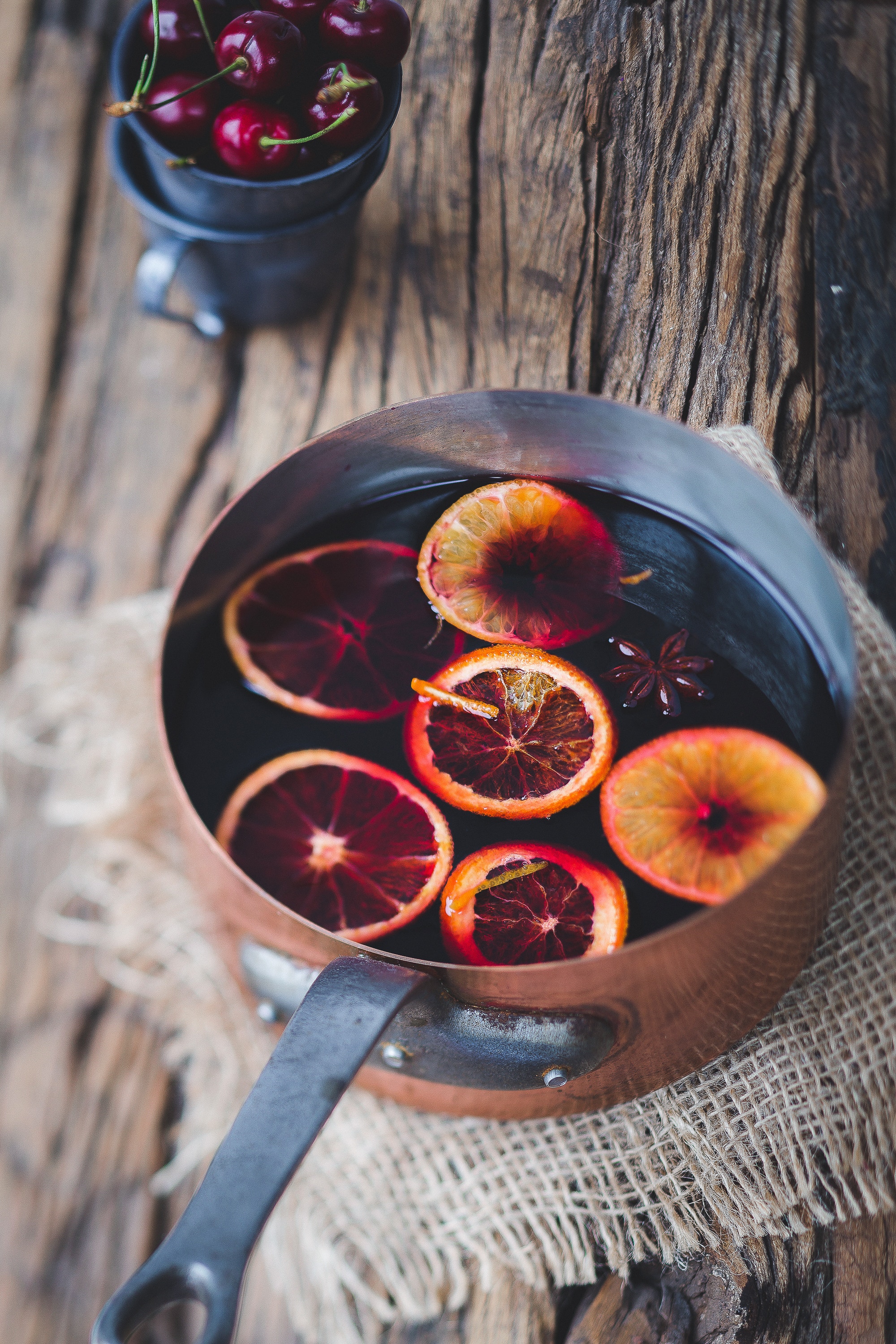Have a Positive Impact This Christmas: Simple Tips
/Disclaimer: This post contains some affiliate links which means that if you end up buying through them we get a tiny commission. You are of course free to navigate to the relevant pages of your own accord, but affiliate links help us to keep the site afloat and we will never suggest anything we don’t believe in.
It’s actually a punishable offence to talk about Christmas in my household before December 1st. But seeing as my local co-op has been selling Christmas themed paraphernalia since the end of September and I actually heard carols blaring out of the local coffee shop the other day, I’ve decided to jump in quickly before the madness sets in to try and encourage you to pause, step back, and perhaps embrace a more mindful Christmas this year.
Let’s get one thing clear before you navigate away from this page with an eye roll and the defensive “I don’t want to feel guilty about Christmas – I work hard and I deserve to enjoy myself” thoughts: this is not about deprivation.
I’m not going to try and convince you to give up your Christmas turkey.
I’m not going to tell you not enjoy the abundance of this period.
I’m not going to tell you not to have Prosecco for breakfast.
I’m just going to suggest a few ridiculously easy ways that your Christmas can have a more positive impact on your world than it would otherwise have.
These aren’t changes that are going to solve huge global issues or inequalities, but they are changes that are manageable, and that if enough of us commit to, have a chance to have a small impact in a positive way.
Christmas Cards
Each year Brits send around 1 billion Christmas Cards. That’s enough to stretch around the world five times. Picture that in terms of trees, forests, fuel.
Positive impact tips:
Think carefully about who you actually want to send physical cards to. A lot of us send cards because we feel that we should, not out of any real desire to connect. It makes sense to send them to your grandma who you only see a couple of times a year, but do you really need to give a Christmas card to every single one of your colleagues?
Don’t forget that you can always send an e-card to people who you think will appreciate it. They have the added benefit of being fully customisable, making up for the slightly less personal touch of electronic mail. Try HERE
Buy cards made from 100% recycled materials (check the back of the card for this info)
Buy cards from charities, helping raise money for a good cause through your purchase. Try The Ethical Superstore for a good selection. Have a look HERE
Recycle all the cards you can (shiney cards and cards with glitter on cannot be recycled)
Wrapping Paper
Every Christmas we use and throw away enough wrapping paper to stretch to the MOON! That’s insanity. Some of this paper is recycled. Much of it isn’t.
Positive Impact Tips:
Shiney, glittery wrapping paper cannot be recycled. Opt for something matte, that passes the “scrunch test”
The Scrunch Test: Shiney metallic wrapping paper is made from metallised plastic film and this type of material is not currently recycled. The scrunch test is a simple way to determine whether wrapping paper is made from metallised plastic film. Simply scrunch the item in your hand - if it remains 'scrunched' it can be recycled; if it springs back it is probably metallised plastic film and not recyclable.
Better yet, eschew wrapping paper all together, and instead keep your eye’s peeled in charity shops for old magazines, musical scorebooks and newspapers that can be used to wrap gifts. Donating money to a good cause, reusing old materials, and making your gifts stand out under the tree – 3 birds with one stone.
Scrap the sellotape: It is PLASTIC. It cannot be recycled. It’s horrible. Use a biodegradable tape like this one instead.
Christmas Presents
Panic buying plastic crap for the stocking, last minute dashes to M&S to buy “smelly stuff” for unexpected Christmas visitors, a novelty beer drinking game for your work secret Santa. We’ve all been there. A lot of the stuff we give and receive at Christmas ends up stuffed at the back of a drawer, chucked out, or breaks before the holidays are over.
Our desire to be seen giving generously results in a lot of people shopping for cheap mass produced goods to make their money go further. But while this might seem friendly to the purse strings, this type of buying has a cost somewhere down the line. Whether that’s by compromising the freedom of modern day slaves who make our cheap fashion, or contributing to the destruction of our environment through buying products and gadgets that we don’t really need or want, someone somewhere is paying.
It’s nice to give, but it’s nicer to give mindfully and choose things that can really be enjoyed by the receiver, and don’t cost the earth or somebody else’s freedom.
We need to stop the frantic senseless consumerism that accompanies this time of year, and slow down and connect to what really matters: Simple pleasures with good friends and family. Kind words and actions to strangers. Confidence in the knowledge that we have enough, that we are enough, and that over consuming in any of its myriad forms will never fill the void.
Positive impact tips:
To avoid waste, and giving gifts that may well end up in landfill, make something useful. Chilli or garlic oil always go down well and will be enjoyed for months to come. Special Christmas biscuits. Bath salts that you can package into old Jam jars and add your own dried flowers to. Make with love, give with love.
If you don’t have the time or inclination to make gifts, then at least buy your gifts from an ethical retailer. We like the Ethical Superstore, which has a good range of products that are cruelty/slavery free. Check them out HERE.
Support social enterprises that give back to the community, and provide meaningful employment for people in need. Check out the social enterprise gift catalogue HERE. There’s loads of good stuff in there from clothing to chocolate to fun things for kids.
Most charities have an online shop, so if there’s one that resonates with you, consider purchasing your gifts from there.
Buy your gifts from local craft markets or businesses and at least support the local economy rather than further filling the pockets of the massive corporations who don’t pay their bloody tax.
Some of the items you’re shopping for might cost more than you’re used to spending. But get used to the idea and feeling of giving less.
Ethical products are almost always better quality and most importantly they don’t contribute to the suffering of others, and you can’t put a price on that. Be confident that you are giving enough (who needs more stuff anyway?) Write a heartfelt message to go with your gift and it will mean much more than another plastic wrapped generic gift set.
Food
According to recent figures, over four million Christmas dinners are thrown away every year – that’s the same as 263,000 whole turkeys, 7.5 million mince pies, 740,000 portions of Christmas pudding and 11.3 million roast potatoes.
That’s £64 million thrown in the bin every year.
Go back and read that last paragraph again. And again until the magnitude of those figures really sink in.
Positive impact tips:
Plan portions, sit down with a calculator (don’t guesstimate - we always overdo it) and work out how much food you really actually need.
Clear out your fridge, freezer, and cupboards beforehand and take stock of what you already have. Create space in those places so that on the day you can get things into the fridge or freezer quickly before they spoil. Use the leftovers to makes soups, stews, curries, sandwich fillings etc.
Birds love scraps of fruit cake and mince pies and the energy will help keep them fat and warm through the cold winter months.
Check out these handy tips to avoid food waste this Christmas from Victoria Glass on the Great British Chefs website HERE.
Some waste is inevitable – compost the bits that you really can’t reuse or save
In addition to not wasting the food you buy, try to buy it from good sources. Buy organic where you can. I’ve written about the impact that non organic food has on our ecosystems and environment before of the blog (HERE). Yes it costs more, but with your new portion controlled method, you don’t need to buy as much (plus, as I say in the other article, cheap food has a cost somewhere down the line).
Go to your local farmers market, chat to the producers, ask about how the food is produced and if you’re convinced that it’s being produced responsibly put in your orders for Christmas
You could also order in food from somewhere like Riverford (check it out HERE)
Savour the food that you do buy, take time over it, share it. Recognise it for the privilege it is and enjoy it rather than scoffing it mindlessly. This will stop the dreaded Christmas bingeing.
Quick Links
Stocking Fillers: https://bit.ly/2AbsMWH
Christmas Pudding: https://bit.ly/2R0d3AF
Riverford Christmas Food: https://bit.ly/2TBkEY9
Abel and Cole Christmas Food: https://bit.ly/2OVqujF
I really hope that these tips are easy enough for you all to implement. Together we can make a difference.
I’d love to hear of any other ways in which you make your Christmas positively impactful. Share with me in the comments below.
Big festive Love xXx
Fancy a week of sun, sea and….yoga? Join Jasmine for a week of Yin and Yang yoga (May 21st - 28th 2019) in Corfu with Just Relax Yoga Holidays. (Mention her name when you book)
Jasmine Pradhan is the editor and co-founder of Balance Garden, and is also a London based yoga teacher you can find her on instagram @stretchandthecity or on her website www.stretchandthecity.co.uk









































